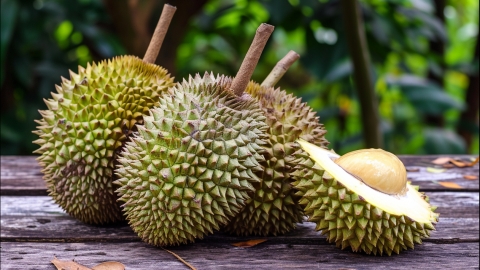What fruits are most忌讳 (avoided) by kidney cancer cells?
Generally, there is no such thing as a "strictest taboo." However, in the diet of patients with renal cell carcinoma, certain fruits should be consumed with caution, including bananas, oranges, durian, mangoes, and kiwifruits. The specific analysis is as follows:

1. Bananas: Bananas are high in potassium. Renal cancer may impair the kidney's ability to excrete potassium, leading to potassium accumulation in the body and potentially causing hyperkalemia, which can result in symptoms such as fatigue and arrhythmia. Therefore, patients with impaired kidney function should strictly limit banana intake to avoid increasing the burden on the body.
2. Oranges: Oranges are also high in potassium and have high acidity. After treatment, some patients may have sensitive gastrointestinal mucosa; excessive consumption of oranges may irritate the digestive tract and cause discomfort. Additionally, due to their high potassium content, patients with poor kidney function should be cautious to avoid disrupting electrolyte balance.
3. Durian: Durian is extremely high in calories, sugar, and fat. During treatment, metabolic disturbances may occur in patients with renal cell carcinoma. Excessive consumption of durian can easily lead to abnormal weight gain and increase the metabolic burden on the kidneys, which is unfavorable for disease stability and recovery.
4. Mangoes: Mangoes contain high levels of sugar, and some individuals may be allergic to them. Allergic reactions could affect overall health and interfere with treatment. Moreover, high sugar intake may destabilize blood glucose levels, so patients—especially those with coexisting diabetes—must strictly limit mango consumption to prevent significant fluctuations in blood sugar.
5. Kiwifruits: Kiwifruits have relatively high potassium content, and their pulp contains certain proteolytic enzymes that may irritate the gastrointestinal tract. Some patients may experience bloating, diarrhea, or other discomfort after eating them. For patients with kidney insufficiency, excessive potassium intake may further increase the risk of electrolyte imbalances.
Before choosing any fruit, patients should consult their doctor or a nutritionist and adjust their diet according to their kidney function status and stage of treatment. If any discomfort occurs after consumption, they should promptly inform their healthcare provider and avoid making independent dietary adjustments.








